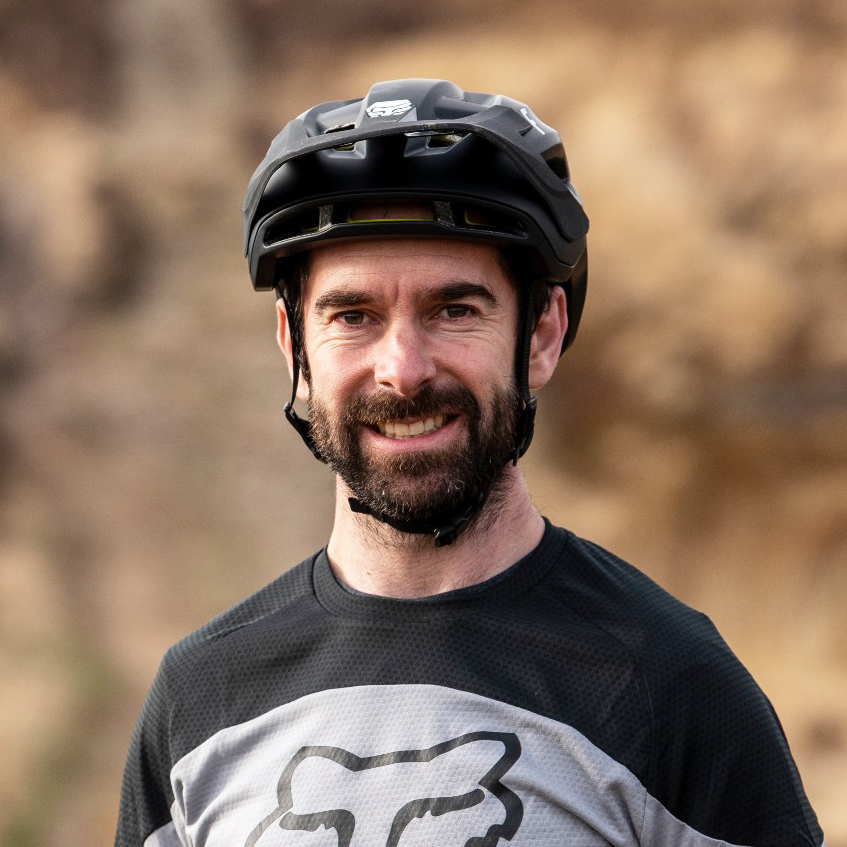Hot on the heels of launching the MTe, its mid-travel, mid-power eMTB, Yeti has bolstered the line-up with a longer-travel, higher-powered bike called the LTe.
The LTe is set to replace the 160e and uses the same Sixfinity suspension system as the MTe, although this time there’s 160mm of rear-wheel travel to control.
Bigger news than that, though, is the switch from Shimano’s EP8 motor – a drive unit and brand Yeti worked incredibly closely with – to Bosch’s Performance Line CX and CX-R motors.
Thanks to a recent update from Bosch, these can now deliver 100Nm of torque and peak power of 750 watts.
Yeti is offering three builds, including the race-ready T4 option, which will set you back a staggering £12,999 / $14,900.
More travel and a new motor

The new LTe frame is made from Yeti’s TURQ-series carbon fibre and built around the Sixfinity, six-bar linkage design that is used to deliver the rear-wheel travel.
Kevlar-like Vectran filaments are used to reinforce the frame, bolstering strength and impact resistance.
Yeti has designed the LTe to work with a 170mm-travel fork up front.
A flip chip at the lower shock mount enables riders to alter the leverage ratio, altering the level of progression of the rear suspension from 25% to 30% or 35%.

Yeti says these three settings equate to ‘racey and consistent’ (25%), ‘balanced ride’ (30%) or ‘plush then poppy’ (35%).
There’s a removable 800Wh battery supplied as standard, with the option to switch to a 600Wh unit if you’re looking to save some weight.
There’s space to run the Bosch PowerMore range extender if you’re looking to tackle really big days on the bike, although this will only fit in medium to extra-large frames.
A nice little touch here is the discreet AirTag or Tile storage integrated into the battery housing, which enables you to track your bike and keep an eye on its whereabouts – no bad thing considering the cost of even the cheapest build here.
The battery powers the fifth-generation Bosch Performance Line CX motor or, in the case of the T4 Race version, the punchier CX Race motor.
Thanks to the over-the-air update, these drive units can now pump out 100Nm of torque and 750 watts of peak power.
Because so much power and torque are being delivered, Yeti says it has lowered anti-squat slightly compared to its other bikes to free up suspension movement, although thanks to the support gained from the Sixfinity system, there should always be ample support provided when you hit the pedals.
A wireless, bar-mounted remote enables riders to toggle through motor settings, which can all be viewed on the new Bosch Kiox integrated top tube display.

An integrated mud guard helps protect the linkage and pivots from getting caked in too much dirt, while the down tube protector doubles as the battery-access door.
Geometry and wheel-size options

The LTe comes in four sizes (small to extra-large) and has a flip chip to enable you to fit a smaller 27.5in rear wheel if you want, without altering the geometry.
There’s also the option of switching up the reach and head angle via aftermarket headset cups if you want to take tuning even further.
What’s nice here, though, is that Yeti includes head tube alignment notches to ensure you get the headset cups positioned properly.
The head angle is a suitably slack 64 degrees, while the seat tube angle sits at an efficient 78 degrees across all sizes.
Chainstays remain 449mm across the board, while reach spans from 435mm to 510mm. That’s an increase of 5mm per size compared to the 160e, all in a bid to boost high-speed stability.
Stack heights vary from 618mm to 645mm, while the bottom bracket is claimed to sit 350mm off the floor.
Yeti LTe specs and range overview
Yeti is offering three build options, all of which use the same frame, although the top-spec T4 bike gets the ‘Race’ version of the Bosch motor.
Battery capacity is 800Wh across the board, with the option of a 600Wh unit if you wish. All bikes get the latest Bosch Kiox display.
All three builds have a SRAM drivetrain and SRAM Maven brakes, along with DT Swiss wheels, although spec levels vary between individual models.
One product each bike has in common is the use of the new RockShox Reverb AXS wireless dropper post.
The cheapest C2 model build kit may vary depending on the global region, with the UK-spec bike coming with Fox Factory rather than Fox Performance suspension.
It’s worth pointing out, though, that even at over $10,000 / £9,499, the cheapest build only comes with SRAM’s Eagle 90 mechanical transmission, which some may see as a little disappointing.
The priciest bike here comes with Bosch’s Race-spec motor and features Fox’s latest inverted fork, the Podium.
Yeti LTe C2

- Frame: Carbon, 160mm travel
- Motor: Bosch Performance Line CX
- Battery: Bosch PowerTube, 800Wh
- Fork: Fox 38 Performance (Factory, UK), 170mm travel
- Shock: Fox Float X Performance (Factory, UK)
- Drivetrain: SRAM Eagle 90 Transmission
- Wheels: DT Swiss H1900
- Brakes: SRAM Maven Bronze
- Claimed weight: 23.5kg
- Price: £9,499 (Factory suspension) / $10,300 / €9,900
Yeti LTe T3

- Frame: Carbon, 160mm travel
- Motor: Bosch Performance Line CX
- Battery: Bosch PowerTube, 800Wh
- Fork: Fox 38 Factory GRIP X2, 170mm travel
- Shock: Fox Float X2 Factory
- Drivetrain: SRAM X0 Eagle AXS Transmission
- Wheels: DT Swiss HXC1700
- Brakes: SRAM Maven Silver
- Claimed weight: 23.3kg
- Price: £10,999 / $12,900 / €12,900
Yeti LTe T4

- Frame: Carbon, 160mm travel
- Motor: Bosch Performance Line CX Race
- Battery: Bosch PowerTube, 800Wh
- Fork: Fox Podium Factory, 170mm travel
- Shock: Fox Float X2 Factory
- Drivetrain: SRAM XX Eagle AXS Transmission
- Wheels: DT Swiss HXC1700
- Brakes: SRAM Maven Ultimate
- Claimed weight: 23.4kg
- Price: $14,900 / £12,999 / €14,500


